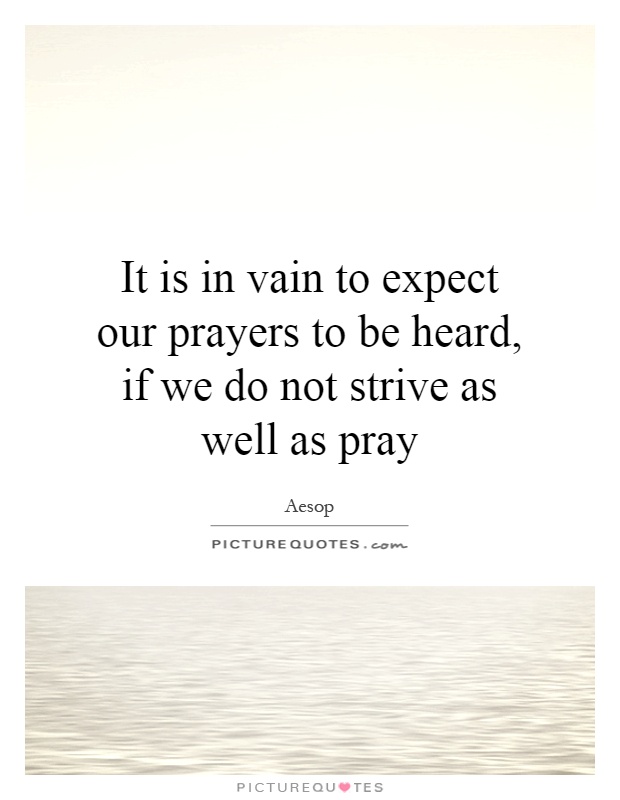It is in vain to expect our prayers to be heard, if we do not strive as well as pray

It is in vain to expect our prayers to be heard, if we do not strive as well as pray
In the fables of Aesop, the importance of action alongside prayer is a recurring theme. Aesop, a Greek storyteller believed to have lived in the 6th century BC, used animals as characters to convey moral lessons to his audience. One of his most famous fables, "The Ant and the Grasshopper," illustrates the idea that hard work and preparation are essential for success.In this fable, the ant spends the summer gathering food and preparing for the winter, while the grasshopper spends his time singing and dancing. When winter comes, the grasshopper finds himself hungry and cold, while the ant is well-prepared and comfortable. The moral of the story is clear: those who work hard and plan ahead will be rewarded, while those who are lazy and careless will suffer the consequences.
This lesson can be applied to the idea that prayers alone are not enough to bring about change or achieve our goals. While prayer is important for seeking guidance, strength, and comfort, it must be accompanied by action in order to be effective. Simply asking for something without putting in the effort to make it happen is unlikely to lead to success.












 Friendship Quotes
Friendship Quotes Love Quotes
Love Quotes Life Quotes
Life Quotes Funny Quotes
Funny Quotes Motivational Quotes
Motivational Quotes Inspirational Quotes
Inspirational Quotes